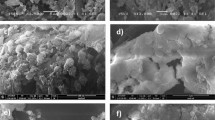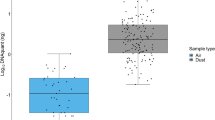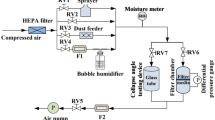Abstract
As is stated by H. B. and M. Baker in their 1912 article, it was a letter in regard to desiccated calomel that led them to study the effects of intensive desiccation on boiling points and other physical properties of liquids, a field in which the many investigators who have since entered it have obtained results that are outstandingly discordant. In looking back at the work of Smith and Menzies, published in 1911, one can readily see that, in working with calomel, they were fortunate in being able to heat the substance to be desiccated for months at 115°, while the drying agent, in another portion of the same apparatus, could be kept at room temperature. But one can recall also a feature of the work that is not obvious, namely, that, by reason of the methods used, their dry system was presumably unusually free from contamination with atmospheric dust. Recent work in this laboratory has again brought to our attention the importance of atmospheric dust.
This is a preview of subscription content, access via your institution
Access options
Subscribe to this journal
Receive 51 print issues and online access
$199.00 per year
only $3.90 per issue
Buy this article
- Purchase on Springer Link
- Instant access to full article PDF
Prices may be subject to local taxes which are calculated during checkout
Similar content being viewed by others
Author information
Authors and Affiliations
Rights and permissions
About this article
Cite this article
MENZIES, A. Contamination by Dust Particles and Intensive Desiccation. Nature 125, 445–446 (1930). https://doi.org/10.1038/125445a0
Issue Date:
DOI: https://doi.org/10.1038/125445a0
Comments
By submitting a comment you agree to abide by our Terms and Community Guidelines. If you find something abusive or that does not comply with our terms or guidelines please flag it as inappropriate.



